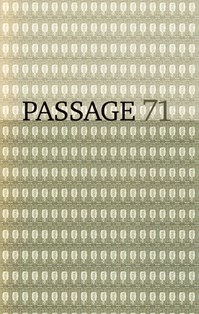Slaveriets profitabilitet. Økonomi og moral i fransk melodrama om den haitianske revolution, 1792-1798
DOI:
https://doi.org/10.7146/pas.v29i71.24520Resumé
Jonas Ross Kjærgård: “The Profitability of Slavery. Economy and Morals in French Melodrama on the Haitian Revolution, 1792-1798”
This article investigates how French revolutionary melodrama depicted the institution of slavery after the outbreak of the Haitian revolution in 1791. Prior to the slave rebellion in France’s most important Caribbean colony, St.-Domingue (present day Haiti), abolitionary writers and intellectuals had presented the argument that slavery was not only morally wrong but also economically unprofitable. For the more radical writers of the 1770s, such as Abbé Raynal and Louis-Sébastien Mercier, slavery was an evil that called for revolutionary violence in the colonies. However, when news of the actual slave revolt and its violent incidents reached France, the stance on violence and the interconnection of morals and economy changed. Through a reading of three plays the article aims to show that the Haitian revolution – as well as the radicalization of the French revolution – caused play writers to condemn violence among the slaves; to urge rebelling slaves to return to the plantations; and to present a colonial system in which slaves became free workers in return for their promise to work hard and accept the continuation of French colonial rule.
Downloads
Publiceret
Citation/Eksport
Nummer
Sektion
Licens
Forfattere, der publicerer deres værker via dette tidsskrift, accepterer følgende vilkår:
- Forfattere bevarer deres ophavsret og giver tidsskriftet ret til første publicering, samtidigt med at værket efter publiceringen er omfattet af en Creative Commons Attribution-licens, der giver andre ret til at dele værket med en anerkendelse af værkets forfatter og første publicering i nærværende tidsskrift.
- Forfattere kan indgå flere separate kontraktlige aftaler om ikke-eksklusiv distribution af tidsskriftets publicerede version af værket (f.eks. sende det til et institutionslager eller udgive det i en bog), med en anerkendelse af værkets første publicering i nærværende tidsskrift.
- Forfattere har ret til og opfordres til at publicere deres værker online (f.eks. i institutionslagre eller på deres websted) forud for og under manuskriptprocessen, da dette kan føre til produktive udvekslinger, samt tidligere og større citater fra publicerede værker (se The Effect of Open Access).





